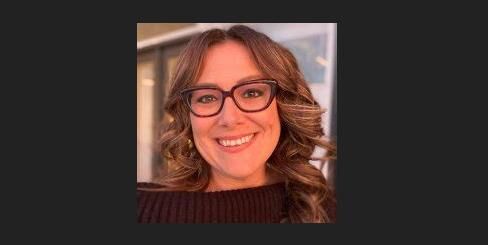House panel kills trio of GOP-sponsored anti-abortion bills

Three anti-abortion bills, sponsored by conservatives in the House Republican caucus, all met the same fate in hearings that started Wednesday afternoon and stretched into the early morning hours of Thursday.
All three failed on party-line votes.
Two of the bills are perennial attempts by the more conservative wing of the GOP caucus to either ban abortion outright or establish in law that life begins at the moment of conception.
The third bill, however, drew the longest hearing. House Bill 1075 would have required the state registrar of vital statistics to collect data from abortion providers based on questions that Democrats and abortion advocates described as stigmatizing and invasive.
It’s the second consecutive try by Rep. Stephanie Luck, R-Penrose, a former Blackstone Fellow with Alliance Defending Freedom, which advocates for Judeo-Christian religious liberty through litigation of cases that affect the rights of the LGBTQ population.
Luck told the House Health & Insurance Committee that HB 1075 is a “boring” bill, a comment that later drew condemnation from committee Democrats.
“I hope to dispel the idea that anything related to abortion has to be this conflict of one party over another,” Luck said, adding most of the questions are already being asked of women seeking an abortion. She also claimed that Planned Parenthood, too, already asks many of the questions she proposes in the legislation.
“Colorado has a legitimate concern with the health of women who undergo abortions,” Luck said.
Under the bill, the Colorado Department of Public Health and Environment would use the data, which would be confidential, to compile an annual report that would be released to the public. Abortion providers who refuse to participate would face petty offense charges.
“If someone refuses to give us this information … then we would actually be willing to press criminal charges against them,” Luck said.
The Penrose Republican also insisted the bill is “not outrageous. It’s not crazy.”
Luck added: “It’s actually just an extension of what we’re already doing.”
The list of questions contained in HB 1075 ran two full pages, including whether a woman had previous abortions and how many, whether she had used birth control and what kind, and her reason for seeking an abortion. Other questions include whether it affected her education or career; whether she is financially unstable, unemployed, and lacked child care or housing; whether she didn’t want other people to know she was sexually active; whether she encountered opposition from friends or family; and, a list of a half-dozen questions about her relationship with her partner.
Opponents of the bill argued the state has no business asking some of the questions in the bill, and that other medical procedures do not require doctors to ask a long list of what they described as invasive questions.
Dr. Catherine Wheeler, a board certified OB-GYN doctor and anti-abortion advocate from Divide, said the information would help develop strategies and “help women plan pregnancy, rather than react” to it. She said women tell her they had abortions because they had no choice, and that only two questions would be added to those already asked – on what kinds of family planning methods were used and the reason for seeking an abortion.
Lauren Castillo, who represents Students for Life, told the committee that the information would only be used to inform research and public policy and that specific information about the women seeking an abortion and abortion providers would be kept confidential.
That’s of little comfort, however, to Selena Najar of COBALT, the abortion advocacy group, who told the committee that similar laws passed in other states resulted in at least one data breach, which led to protestors showing up on the front lawn of abortion providers.
Najar said HB 1075 is invasive and stigmatizing, and it violates a patient’s most basic right to privacy.
“Anti-abortion activists who support HB 1075 have dubbed it an abortion surveillance bill,” Najar said. “This bill goes far beyond what is necessary for public health.”
She added that abortion providers already report statistics to the state, and that regulatory process belongs in that space, not in state law “as a mechanism to target abortion providers for licensure revocation.”
Similar laws are being pushed in 30 states, she said, with the goal of “discouraging anyone from seeking abortion care for fear of being interrogated about the deeply personal reasons they are seeking care.”
Katherine Riley of the Colorado Organization for Latina Opportunity and Reproductive Rights said the bill would create a process for identifying and targeting providers with extreme violence.
“No part of this bill is meant to serve or protect patients and providers, nor does it contribute to the overall health and wellbeing of our communities,” she said.
Jaime Erker of the Centennial Institute said abortions are underreported in Colorado, and, as a result, the state lacks the necessary information to enact effective public health policies on why women get an abortion and what leads to unplanned pregnancies. More data would lead to policies that could provide better resources for the women who find themselves in need of abortions, Erker said, adding that collecting information on rape, incest or human trafficking could help the state better identify women who may be at risk.
Doctors said during the hearing they are already required to report this information.
Rep. David Ortiz, D-Centennial, challenged witnesses who claim the bill is not intrusive and say the “people of Colorado want to know” the answers to the questions being proposed in the bill.
“What polling data do you have?” he asked. He didn’t get a direct answer.
Juliana Day, who works with a ministry, said asking the questions would serve to show women “we care. It has nothing to do with being intrusive.”
“We don’t need to collect this data,” Ortiz said moments later. “I would love to see this many people show up for healthcare or affordable housing … we shouldn’t stigmatize a difficult decision.”
Through written testimony, Dr. Aaron Lazorwitz, an abortion provider and OB-GYN, said the bill represents an invasion of privacy both for him and his patients. He added that abortion providers are already under constant threat.
“There is no medical or justifiable reason to invade the privacy of Colorado women,” he wrote, adding no two patients are the same, every pregnancy is different, and each personal situation is unique.
“No one owes me or anyone else an explanation” of why someone is seeking an abortion, Lazorwitz said.
Dr. Rebecca Cohen said the bill demands that she sacrifices an “honest, nonjudgmental relationship with her patient.” The sheer volume and specificity of information required under HB 1075 could identify a person, she said.
She added the bill allows for the release of information to anyone, which means it could be shared with a patient’s employer, the news media or even an abuser. That’s a clear violation of her ethical commitment to confidentiality and safety, Cohen said.
How the state health department vies the bill is unknown, as no one from the agency attended the hearing.
HB 1075 died on a 4-7 party-line vote.
Following the hearing on HB 1075, the committee reviewed HB 1079, sponsored by Rep. Dave Williams, R-Colorado Springs. The measure bans abortions outright. The panel also tackled Rep. Patrick Neville’s HB 1047, which seeks to define life as beginning at the moment of conception. Both bills also were postponed indefinitely on the same 4-7 party-line vote.
The bills drew testimony from Pastor Jeff Durbin of the Apologia Church of Tempe, Arizona, who runs End Abortion Now and who has argued women who have abortions should be executed.
The late marathon hearing is not the last word on abortions this session, as Democrats plan to run a bill that would establish in state law that abortions are legal in Colorado.














